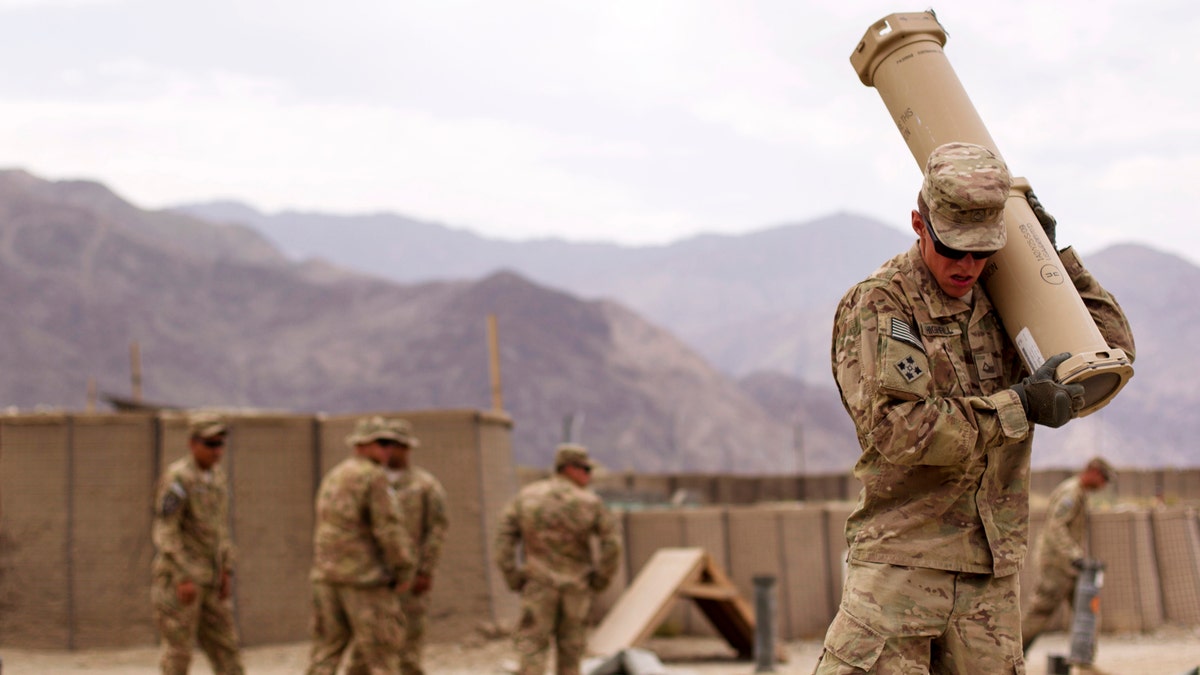
Secretary of Defense Chuck Hagel announced in May that the military's ban on transgender service should “continually be reviewed,” but stopped short of saying it should be overturned. Three retired generals are now saying the time is now. (Reuters)
Suicides among active-duty soldiers in July more than doubled from June, accelerating a trend throughout the military this year that has prompted Pentagon leaders to redouble efforts to solve a puzzling problem.
The Army, which is the only branch of the military that issues monthly press statements on suicides, said 26 active-duty soldiers killed themselves in July, compared to 12 in June. The July total was the highest for any month since the Army began keeping such statistics, according to Lt. Col. Lisa Garcia, an Army spokeswoman.
The Marine Corps had eight suicides in July, up from six in June. The July figure was its highest monthly total of 2012 and pushed its total for the year so far to 32 -- equal to the Marines' total for all of 2011. The Marines' July figure is being posted on its website but was provided first to The Associated Press.
The Air Force said it had six in July, compared to two in June. The Navy had four in July but its June figure was not immediately available.
The Army's suicide numbers have been higher than the other services, in part because it is substantially larger than the Marine Corps, Navy and Air Force. The Army also has had more members in combat over the past decade. It was the main ground force in Iraq and has a preponderance of the U.S. troops today in Afghanistan.
For the first seven months of 2012, the Army recorded 116 suicides among active-duty soldiers. If that pace were maintained through December the year's total would approach 200, compared to 167 for all of 2011.
"Suicide is the toughest enemy I have faced in my 37 years in the Army," said Gen. Lloyd J. Austin III, the Army's vice chief of staff, who is spearheading his service's efforts to find ways to halt the surge in suicides.
"That said, I do believe suicide is preventable," Austin added. "To combat it effectively will require sophisticated solutions aimed at helping individuals to build resiliency and strengthen their life coping skills."
Suicidal behavior in the military is thought to be related to cumulative stress from combat duty, but it also is believed to be linked to a range of other pressures such as marital and financial problems as well as health issues.
Of the 26 active-duty soldiers who committed suicide in July, all were male and only two were officers, according to figures provided by the Army's office of public affairs. Thirteen were married, 10 were single and three were divorced. A breakdown of the deployment history of 14 of the 26 showed that six had never been deployed, seven had been deployed between one and three times, and one had been deployed six times.
So far this year the number of suicides in the military has surged beyond expectations, given that the pace of combat deployments has begun to slow. The Defense Department closely tracks suicides throughout the military but releases its figures only once a year. The Associated Press in June obtained an internal Defense Department document that revealed that there had been 154 suicides in the first 155 days of the year, though June 3. That marked the fastest pace of active-duty military suicides in the nation's decade of war.
The Tragedy Assistance Program for Survivors, a private organization that provides support for military members and their families, said counseling and other forms of care for emotionally distraught military members is often too little, too late.
"Others never seek help out of fear over how others will view seeking treatment," the group said in a statement Thursday.












































